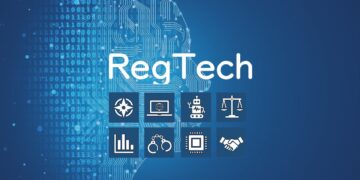In the current digital landscape, our personal information has become one of the most valuable assets, fueling a global economy of targeted advertising, personalized services, and advanced analytics. However, the unchecked collection and use of this data have created a growing sense of unease and a pressing need for a new framework of rules. Data Privacy: The New Regulations represents a seismic shift in how we think about and govern personal information. It’s a complex, global movement driven by the fundamental belief that privacy is a human right. This article provides an in-depth look at the latest and most influential data privacy regulations, exploring their impact on businesses, their empowerment of consumers, and the philosophical underpinnings that are reshaping our digital world. We will navigate the legal complexities of GDPR, CCPA, and other global laws, and offer a strategic guide for adapting to this new, more accountable era of data handling.
The Genesis of a Global Privacy Movement

The modern era of data privacy regulation didn’t happen overnight. It is the result of years of mounting public concern over data breaches, the use of personal data in political campaigns, and the opaque practices of technology companies. The response has been a global push for legal frameworks that restore power to the individual.
A. The European Union’s GDPR: The Gold Standard: The General Data Protection Regulation (GDPR), which came into effect in 2018, is widely considered the most significant data privacy law in the world. Its influence extends far beyond the EU’s borders, acting as a global benchmark for data protection.
- Core Principles of GDPR: The regulation is built on a foundation of principles that are non-negotiable for companies. These include lawfulness, fairness, and transparency, requiring clear communication about data usage; purpose limitation, meaning data can only be collected for a specific, stated purpose; and data minimization, ensuring only necessary data is collected.
- Empowering Individual Rights: GDPR gives individuals a powerful set of rights, including the right to access their data, the right to be forgotten (or have their data erased), and the right to data portability, allowing them to take their data from one service to another.
- Extraterritorial Reach: One of the most impactful aspects of GDPR is its reach. It applies to any company, anywhere in the world, that processes the personal data of EU residents. This provision has compelled multinational corporations to adopt GDPR-compliant practices globally, effectively making it a universal standard.
B. The U.S. and State-Level Regulations: While the United States lacks a single federal data privacy law, states like California have led the way with robust regulations.
- California’s CCPA and CPRA: The California Consumer Privacy Act (CCPA) and its successor, the California Privacy Rights Act (CPRA), provide a strong framework for consumer rights. CCPA gives consumers the right to know what data is being collected about them, the right to opt out of the sale of their data, and the right to delete their data.
- Expanding the Framework: CPRA, which went into effect more recently, strengthened these rights by creating a new enforcement agency and introducing the concept of “sensitive personal information” with its own set of protections. The California model has become a blueprint for other states, creating a patchwork of regulations across the country.
C. A Global Patchwork of Regulations: The trend is not limited to Europe and the U.S. A number of countries have passed or are in the process of passing their own comprehensive privacy laws.
- Brazil’s LGPD: Brazil’s Lei Geral de Proteção de Dados (LGPD) is heavily inspired by GDPR, creating a unified legal standard for data privacy in Latin America.
- China’s PIPL: China’s Personal Information Protection Law (PIPL) is one of the world’s strictest, with a strong focus on data localization, mandating that certain data be stored within China’s borders. These varying approaches highlight the complexity of operating a global business in a regulated world.
The Business Mandate

For businesses, the new regulatory landscape is more than just a legal hurdle. It represents a fundamental shift in how they must engage with their customers. The focus is moving from mere compliance to actively building a foundation of trust.
A. Privacy by Design and Default: This is a proactive approach to data privacy that moves away from reactive measures.
- Proactive Integration: Privacy by Design means that privacy is considered at every stage of a product’s development, from the initial concept to the final launch. This includes things like data minimization, only collecting the data you absolutely need, and pseudonymization, which protects an individual’s identity.
- Default Privacy Settings: Privacy by Default ensures that a product’s most private settings are the default. For example, a social media platform would be set to “private” by default, requiring the user to actively change the setting if they want to be public.
B. Building a Privacy-Centric Culture: The most successful companies in this new era are those that embed a culture of privacy throughout their entire organization, not just in their legal or IT departments.
- Employee Training: This involves regular training for all employees on the importance of data privacy, how to handle sensitive data, and what to do in case of a data breach.
- Transparent Communication: Companies are being forced to be more transparent about their data practices. This means using plain language in privacy policies, creating easy-to-use dashboards for users to manage their data, and being proactive and honest when a data breach occurs.
C. The Economic Incentive of Trust: While the initial investment in compliance can be substantial, there is a clear economic benefit to prioritizing data privacy.
- Enhanced Reputation: In a world where data breaches are common, a company that is known for protecting customer data has a major competitive advantage. This enhanced reputation can lead to greater customer loyalty and trust.
- Competitive Differentiation: A strong commitment to privacy can be a key selling point, allowing a company to differentiate itself from competitors that are seen as less trustworthy.
The New Digital Citizen
The new regulations are fundamentally about empowering the individual and transforming them from a passive data subject into an active participant in the digital world. This is a profound shift that creates a new type of digital citizen.
A. The Right to Know and Access: Individuals now have the right to demand that a company tell them what personal data they have collected and for what purpose. This is a powerful tool for transparency that can reveal how a person’s digital footprint is being used.
B. The Right to Rectification and Erasure: The right to rectification allows an individual to correct any inaccurate information a company has about them. The right to erasure, often called the “right to be forgotten,” allows an individual to request that a company delete their data. This gives people a powerful tool for managing their digital identity.
C. The Right to Object and Restrict Processing: The right to object gives individuals the power to tell a company they don’t want their data used for certain purposes, such as direct marketing. The right to restrict processing allows individuals to temporarily stop a company from processing their data, for example, while they are disputing its accuracy.
D. The Power of Informed Consent: The new regulations demand that consent be a clear, unambiguous, and active choice. This moves away from pre-checked boxes and confusing language, ensuring that individuals truly understand what they are agreeing to. This simple change gives individuals a new level of control over their personal information.
The Future of Data Privacy
The current regulatory landscape is far from settled. The next phase of data privacy law will be shaped by the rise of new technologies and a growing global demand for accountability.
A. AI and the Right to Explanation: The rapid rise of artificial intelligence presents a new set of privacy challenges. AI models are often trained on vast datasets of personal information, and the decisions they make can be difficult to audit. The next wave of regulations will likely focus on the right to an explanation, a legal framework that requires a company to explain how an AI made a decision about an individual, such as in a loan application or a hiring process.
B. Data Localization and Data Sovereignty: The trend of data localization, where a country requires certain data to be stored within its borders, is gaining momentum. This is a complex issue that can create friction for global businesses, but it is driven by a desire for national security and data sovereignty. The future of data privacy will involve a more nuanced approach to cross-border data transfers.
C. Global Harmonization of Regulations: While we are currently in an era of a fragmented regulatory landscape, there is a strong push for global harmonization. A single, unified standard for data privacy would make it easier for businesses to comply and for consumers to understand their rights, creating a more consistent and trustworthy digital ecosystem. International organizations and trade agreements will play a crucial role in this process.
D. The Role of Decentralized Technology: Technologies like blockchain and decentralized applications (dApps) are offering new possibilities for data privacy. These systems can store data in a decentralized, encrypted way, giving individuals complete control over their information without the need for a central authority. This technology has the potential to fundamentally change the way we think about data ownership and security.
E. The End of Third-Party Cookies: The internet is moving away from third-party cookies, which have been the foundation of targeted advertising for years. This change, driven by both regulation and browser changes, is forcing companies to find new, more transparent ways to collect data. The future of data privacy will focus on ethical data collection and a more direct, consent-based relationship with the consumer.
Conclusion
The new regulations in data privacy are more than just a set of legal requirements; they represent a new social contract for the digital age. They are a recognition that our data is an extension of ourselves, and that its protection is essential for our autonomy, security, and well-being. For businesses, this is a pivotal moment to move beyond a compliance-only mindset and embrace data privacy as a core value. For individuals, it is an opportunity to reclaim control over their digital lives. The path ahead is complex, but it is clear: the future of the digital world will be defined not just by innovation, but by a deep and unwavering commitment to the privacy and dignity of every user. The new regulations are not just about rules; they are about building a more ethical and trustworthy digital society for all.












